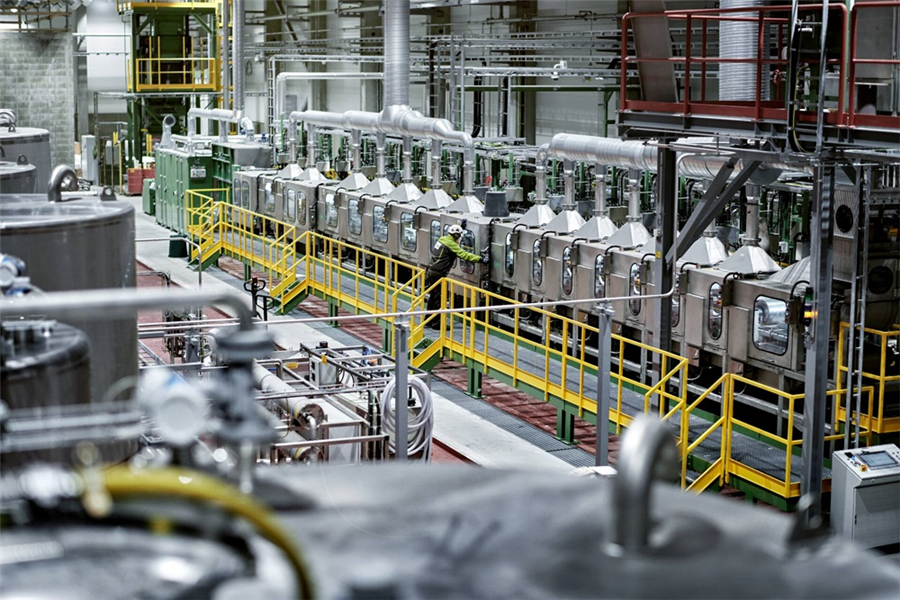NEWS
Students of JAMK University of Applied Sciences participate in the production of Metsä Group’s Kuura textile fibre
Metsä Group’s innovation company Metsä Spring and the Institute of Bioeconomy at JAMK University of Applied Sciences have launched a cooperation that enables agrology students from JAMK to participate in the production of the Kuura textile fibre at the Äänekoski demo plant.
The demo plant is owned by a joint venture between Metsä Spring and ITOCHU Corporation from Japan. A main goal of the on-going project is to demonstrate the feasibility of the production method for the new Kuura textile fibre. The demo plant, which started operations in late 2020, now employs around 15 persons. Metsä Group also wants to offer students in the region the opportunity to participate in the cutting-edge production of an innovative textile material.
“The demo plant is looking for inspired, responsible and productive students for the trial runs of the textile fibre. As a local, competent and flexible partner, the Institute of Bioeconomy is very suitable partner for this purpose. Our cooperation has got off to a flying start,” says Kari Ala-Kaila, CEO of MI Demo, the joint venture of Metsä Spring and ITOCHU.
The plan is to continue cooperation with the Institute of Bioeconomy and provide traineeships at the demo plant in the future. JAMK’s agrology students are in an employment relationship with Metsä Group. In addition to work experience, they gain credits for the hours spent at the demo plant.
“I’m interested in the upgrading of wood and wanted to get a closer look at what it can mean in practice. I was also inspired by the opportunity to gain work experience other than farm work. It’s been interesting to follow all the stages involved in converting pulp into textile fibre. We also get to really participate in practical work,” says Kati Merruntaus, a student of agrology.
“This cooperation offers our students an excellent opportunity to see and experience the practical demands of developing a new industrial product for the circular bioeconomy. It also provides them with valuable insights into the production of a bio-based textile fibre, which will be in demand in the future,” says Minna Lappalainen, Director of the Institute of Bioeconomy.
Production of the textile fibre will be tested at the demo plant for approximately two years. If the feasibility of the manufacturing method and market interest in Kuura can be proved, Metsä Group will consider investing in a larger textile fibre mill, which would also be located next to its bioproduct mill. There is a significant market demand for a sustainably produced textile fibre globally.




